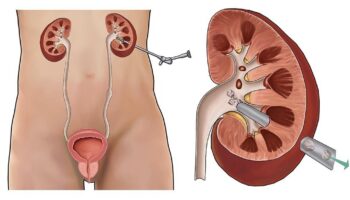Deciding on the contraception form you want to use is a personal decision. However, you need to balance each method’s pros and cons to know whether the one you choose will best suit your unique needs. The good news with Forest Hills birth control methods is, you will not use a form without the medical professionals helping you weigh your options. Your doctor will counsel and advise you on a method that best suits your family planning needs.
What should you consider before choosing a birth control form?
Choosing the best birth control form can be challenging because of the variety of options available. Therefore, go for an option that you will use consistently and comfortably as a couple. Other considerations you may also look out for in the contraception form include:
- Effectiveness of the method
- Convenience
- Do you use the contraceptive form daily?
- Will you be able to get pregnant after you stop using it?
- Does the form have potential complications?
- Will the method protect you against STIs?
- Does the method fit your lifestyle?
- Do you have particular health conditions?
What are the contraception methods you might have?
There are various birth control categories, each method working differently to prevent fertilization from taking place. You should know that most contraception methods may not protect you against STIs. However, if you want prevention from STIs, your doctor may recommend condoms in combination with another contraception method.
Therefore, the categories of birth control methods include:
- Short-term hormonal contraception
Hormonal contraception methods adjust your progestin and estrogen levels, making it difficult for you to get pregnant. Examples of hormonal contraception forms include daily birth control pills, hormonal patches you may need to replace weekly, and a shot or vaginal ring you may need every month. However, you cannot use such methods without a prescription from your healthcare provider.
- Long-term contraception
Long-term birth control might be your best option when looking for a lasting, effective solution without maintenance. Your options in such an instance might be an implant your doctor will implant in your arm or an IUD in your uterus. While the implant works by adjusting progestin levels, copper IUDs prevent the sperm from fertilizing your eggs.
- Permanent contraception
Your doctor might suggest permanent birth control methods if you are not considering having children in the future. While these methods do not interfere with your hormonal levels, you will not be able to get pregnant.
- One-time barrier contraception
A one-time barrier contraception form does not require a prescription. As such, the forms are available in stores. Though the forms prevent fertilization from taking place, each form works differently to ensure success. However, your doctor might suggest you use a one-time barrier contraception form with another method for effectiveness.
- Emergency contraception
Emergency forms are most applicable when you are having sex without a birth control plan. However, you must use the form as soon as you should for effectiveness. While some methods might prevent pregnancy within three days of unprotected sex, others might minimize your chances of getting pregnant within five days after unprotected sex.
Though most contraception methods effectively prevent unexpected pregnancies, go for an option you can use correctly and consistently. Schedule an appointment with your doctor for birth control counseling services before settling on a contraception method.





